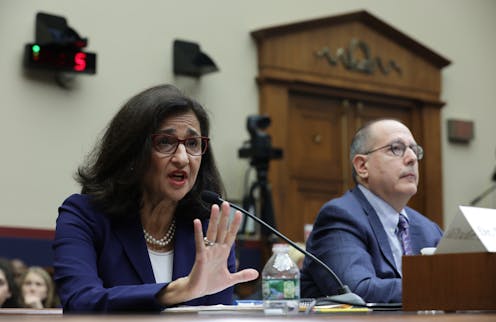Iraq needs more than firepower to survive Islamic State’s onslaught

During his recent unannounced visit to Baghdad the US secretary of state John Kerry mentioned that “a new and inclusive Iraqi government has to be the engine of our global strategy" against Islamic State. The new government of prime minister Haider al-Abadi is now in place but its task is, to say the least, onerous.
If analysts are right that Islamic State (IS) has displayed a capacity to actually govern the territories it controls, rather than just terrorise them, then the new coalition running the country is facing a monumental challenge. At stake is the entire project of rebuilding Iraq.
Security measures, primarily of a military nature, have so far been the principal tool used to push back against IS’s territorial advances, and to halt the violence it has unleashed against civilians and opponents in the territories it has conquered. Those measures are obviously vital; the consensus in the literature on peace-building is that, without a minimum level of physical security, no other set of reforms, whether political, economic or social, can take place.
But there are other, enormous problems to be faced. There is obviously the question of whether Iraq and the West’s military measures might play into the hands of IS, rather than weakening it. But there is also the matter of what else might be required to reverse the impact IS has already had.
Beyond bullets
According to the NGO International Crisis Group, IS has been allowed to flourish as the result of corruption, weak institutions and sectarian polarisation; in other words, the failure to build a functioning post-Saddam Iraqi state.
Military action alone, therefore, cannot deal with this fiendish problem. Iraq desperately needs its new ruling coalition to build an Iraqi state that can equitably serve the needs of all its citizens – and which can in turn be accepted as legitimate by all of Iraq’s major sectarian and ethnic groups.
The fact that the allocation of the new cabinet and the three deputy prime ministerial positions represent Iraq’s main groups is a welcome first step away from al-Maliki’s era of exclusionary sectarian policies. But those individuals, and the forces they represent, need to break with past behaviours and instead work together for the betterment of the country.
If there is anything we can learn from post-conflict scenarios such as Bosnia and Herzegovina, it is that power-sharing arrangements can all too easily fall prey to the parochial interests of political forces.
Vague promises
Those countries that have been involved in Iraq’s long and fraught post-2003 rebuilding process also need to take a hard look at their track record in the country. The advance of IS has demonstrated the extraordinary weakness of the Iraqi state, whose institutions remain enslaved to sectarian interests, and disintegrate when put to the test.
Scenes of army, police and other state security forces fleeing the IS advance, leaving many civilians unprotected while others celebrated this take-over as a “salvation”, allegations of ongoing human rights violations in Iraqi jails, images of civilians joining their own groups’ militias (rather than the state security forces) to fight IS – all these demonstrate the myriad problems that continue to block the development of vital Iraqi institutions.
Efforts to move on are already underway. During Kerry’s Baghdad trip he welcomed Iraq’s plans to create new national guard units which will be a whole new part of Iraq’s domestic security forces. They will be trained on national military bases and will receive salaries and pensions from the central government – but, to redress the divisiveness of al-Maliki’s sectarian policies, they will be recruited from local populations and responsible for security in their local areas.
It remains to be seen whether this initiative will become a reality; the US promised financial support for the new national guard, but it did not specify how much. What remains certain is that national guards, drones, and airstrikes alone cannot create a stable society. Iraq’s new leaders cannot rely on security options alone, even with US firepower and money behind them.















